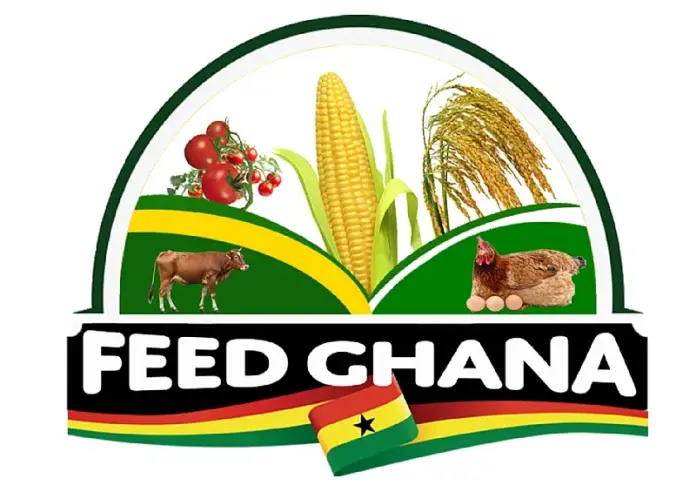The Minister of Food and Agriculture, Hon. Eric Opoku, has attributed Ghana’s current bumper harvest to the government’s Feed Ghana Programme, insisting that the initiative is fulfilling its mandate of driving mass participation in agriculture.
His remarks come as farmers in several regions raise concerns over market access, despite producing food in large quantities under improved conditions. Speaking on the scale of production, Hon. Opoku said the glut being experienced across the country should be seen as proof of the programme’s success.
He explained that in districts such as Asunafo South, young people who embraced the initiative are recording surpluses of rice and other crops beyond what local markets can absorb. “What is happening now – what Ghana is experiencing – is a nationwide bumper harvest,” he said, highlighting that this was not an isolated outcome but a national reality.
The minister outlined that the Feed Ghana Programme was deliberately designed to promote broad participation by individuals, schools, churches, and state institutions. He recalled that the campaign had urged households to cultivate backyard gardens and senior high schools to establish farms, a message that was embraced across the country.

“From the beginning of the campaign up to today, we have on record that 129 SHS are participating,” he explained, adding that churches and other faith-based organisations had also directed their branches to commit fertile land to the initiative.
Hon. Opoku emphasised that agriculture remains largely private-sector-led, but the government’s role in providing the right environment for farmers has been critical. He noted that favourable weather had further strengthened the programme’s results, leading to the surge in output currently on the market.
The minister warned, however, that the glut may intensify in the coming months as harvests from the northern belt are yet to reach markets, even though the southern sector is already driving surpluses.
Middlemen and Market Distortions
While praising the gains of the programme, Hon. Opoku raised concerns over market inefficiencies that continue to affect both farmers and consumers. He revealed that despite significant drops in farm gate prices, food prices in urban centres remain comparatively high because of “profiteering middlemen.”
“When you go to the production point, the farmers are complaining that they were selling a truck of yams at GHS 7,000. When they started harvesting, it came down to GHS 4,000, and it is now hovering around GHS 3,000 and GHS 2,000 at the farm gate”
Hon. Eric Opoku, Minister of Food and Agriculture

According to the minister, middlemen exploit the gap between farmers and consumers by buying cheaply and reselling at “throat-cutting” prices.
This, he explained, denies both farmers and consumers the full benefit of the harvest season and although some urban prices have eased compared to earlier in the year, he stressed that they do not yet reflect the sharp reductions at the farm level.
Mr. Opoku further pointed out that consumer choices also play a role in sustaining price disparities. He said a section of urban dwellers continue to prefer imported food items sold in shopping malls over cheaper local produce available in traditional markets.
“The prices cannot be compared to those in the local market now because the local ones are now cheaper,” he added. The minister urged the public to support local production by prioritising Ghana-made food, stressing that such choices would not only protect farmers but also strengthen the broader economy.
He framed it as a call for reciprocity, arguing that while the government had committed itself to ensuring national food security, citizens must in turn embrace local foods as part of a shared responsibility.
With the Mahama administration seeking to consolidate food security gains, the bumper harvest is being hailed as a milestone of policy success.

Yet the minister’s warnings about glut, profiteering, and consumer preferences underscore the need for stronger market linkages and public support to ensure that the benefits of abundance are shared equitably across the country.
READ ALSO: Tinubu Declares ‘Worst Is Over’ In Independence Address























